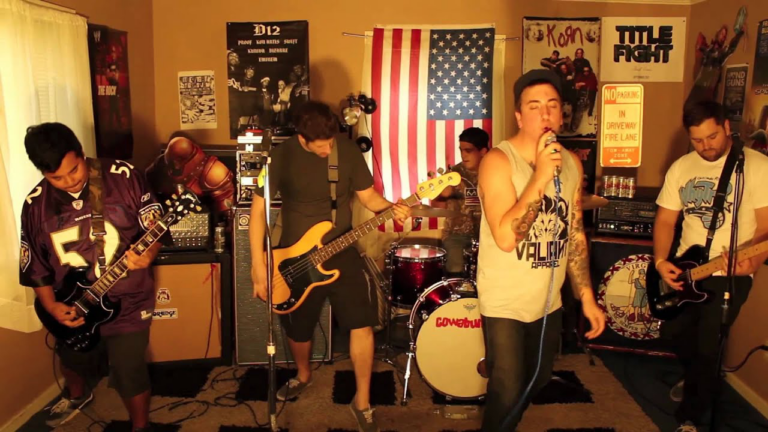As a child I was an avid reader, eagerly consuming each book I happened upon. Books revealed other worlds of friends and adventures to me: I wanted to go to Hogwarts, explore the multiverse with my dæmon and defeat the White Witch with Aslan. Reading fulfilled my sense of adventure and wonder, and I longed for a fantastical story of my own.
But just as real life is not always sunshine and rainbows, so too with books. While I enjoyed the many tales ending in “Happily Ever After” of my childhood and learned from them many subtle life lessons, the books I read as I got older taught me more specific lessons that left a greater impact. These later books left me feeling unsettled and pushed me to contemplate the state of the world. That such books are often about serious topics has no bearing on the quality of the writing—if anything, it takes more skill to write about delicate subjects in a balanced, respectful way that remains compelling.
This is a hard task, to be sure, but one that is possible. I believe the books listed below have hit the right balance and are especially relevant in the current political climate. We have so much to learn from shared stories and the written word; these unique sources of knowledge only grow more important in our increasingly digital world.
To Kill a Mockingbird by Harper Lee
If you haven’t heard of or read this book, then it’s time to crawl out from under your rock! Published in 1960, this Pulitzer Prize-winner has since become entrenched in the literary canon as a classic. The story starts out by establishing the childhood innocence experienced by main characters Scout and Jem, before shattering that innocence by bringing them face-to-face with the racial prejudice and resulting injustice that plagues the Deep South. Atticus Finch, everyone’s favourite defence attorney, tells Scout that in order to really understand a person you need to walk around in their shoes. This book reflects this message by reminding us of how the world looks through the eyes of the “uninitiated.” Atticus Finch also serves as an excellent example of how education must start at home, and the resulting effect this has on children. Given the recent discussions of the injustices present in legal systems across the world, To Kill a Mockingbird is a book that everyone needs to read.
The Underground Railroad by Colson Whitehead
As a history student focusing on the British Empire, many of my classes have involved the study of the transatlantic slave trade. It’s a heavy topic, but it’s essential to learn about how the atrocities of the past continue to shape our present. However, after a discussion in a seminar at the start of this year, I realised students were already desensitized to the subject; we’re so inundated with stories of violence in the media that it’s difficult to grasp the reality of these events. The statistics about enslaved Africans that we wrote down were just that: statistics, and nothing more. The nonchalance displayed in that seminar disturbed me and I feel we need to find other ways to connect with these topics in the classroom.
The Underground Railroad presents another way. Colson Whitehead’s story imagines the so-called Underground Railroad as an actual underground railroad and depicts the main character Cora’s tumultuous bid for freedom. Despite its historical fiction status, the book is quite realistic: the way African Americans are treated in the book is described in such a visceral way that images from the story haunted me for days afterward. While I would say this book is not for the faint of heart, it’s still something everyone needs to read to begin appreciating what enslaved Africans had to endure.
The Diary of a Young Girl by Anne Frank
This book hardly needs any explanation on my part. Anne Frank’s diary provides heartbreaking insight into the horrors that Jewish people and other persecuted minorities experienced during World War II. Not only does exploring personal experiences and perspectives make the Holocaust more real for us, but it also serves as a reminder that people living in 2018 also have experiences not so dissimilar to Anne’s. Just because I am fortunate enough to live somewhere unthreatened by war, doesn’t mean everyone has the same privilege.
I Accuse…: The Anti-Sikh Violence of 1984 by Jarnail Singh
Jarnail Singh is a journalist who became infamous in India for allegedly throwing a shoe at the Indian home minister during a press conference. While the media focused on his act of throwing the shoe, nobody questioned why he did it. This book is Singh explaining why: he describes the events following the assassination of Indira Gandhi (then prime minister) in 1984 that led to mass violence against followers of Sikhism and turned the streets of northern India red. Woven throughout are countless personal stories, mostly from widows of victims; each story is more heartbreaking than the last. I wanted to scream and rage about this to everyone around me. Why didn’t more people know about this? Why don’t more people talk about this? How could it be that this just happened and people still haven’t received justice, nearly 35 years later?
The other thing that struck me while reading Singh’s book was how eerily familiar it felt. It was reminiscent of the way Muslims are treated in the post-9/11 Western world. This book serves as a reminder of the damage that can be caused by intolerance and discrimination.
Nineteen Eighty-Four by George Orwell
Finally, I end on an ever-so-slightly lighter-hearted note with a work of fiction: Nineteen Eighty-Four. A satirical criticism of Stalin’s Russia, Orwell explores an alternate version of London that has been absorbed into a totalitarian regime where no free thought is permitted. The main character, Winston, tired and angry with the oppressive government he works for, decides to rebel for the first time in his life. This book is relevant in 2018 not because we necessarily face these problems now, but because we’re seeing the beginnings of a surveillance state creeping into our lives. People often bring up Orwell for his freakishly accurate predictions about the state of the world—you might as well get a jump on it and be prepared.




